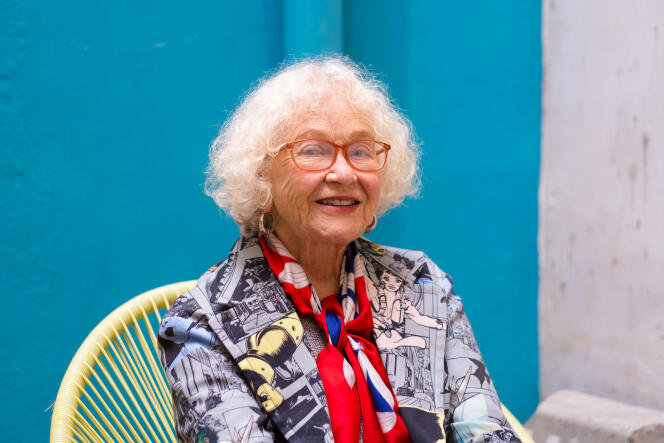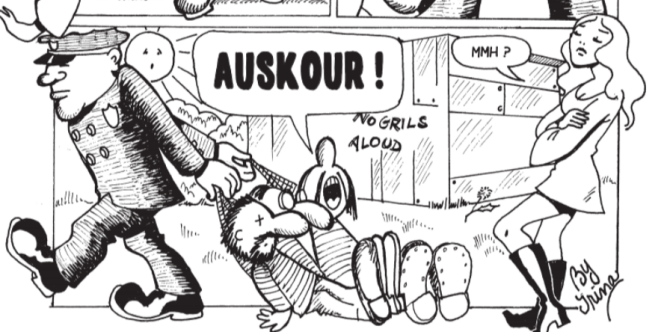


The American comic strip community has lost one of its pioneers, an activist who worked for the recognition of female authors in the ninth art. American Trina Robbins died on Wednesday, April 10, aged 85. The news was announced by those close to her, including her daughter Casey Robbins, who paid tribute to her on Facebook.
Born in 1938, Trina Pearlson (Robbins is her ex-husband's surname) grew up in New York in a modest Jewish family originally from Belarus. As soon as she was old enough to read, she discovered comic books – collections of comic strips printed on inexpensive paper, popular in the United States. She became fascinated by the adventures of heroines like Wonder Woman, Katy Keene, Patsy Walker and above all Sheena, Queen of the Jungle, with whom she particularly identified, as she told Le Monde in 2022.
As a teenager, she gave up comics for science fiction and attended her first fan conventions. She then blossomed in the bohemian folk circles of New York, one of the epicenters of the American counter-culture in the late 1950s. Moving to California in 1960, she became a self-taught stylist, dressing music stars in hippie garb: David Crosby, Donovan and Cass Elliot of The Mamas and the Papas. She even inspired the first verse of Joni Mitchell's song "Ladies of the Canyon.
In 1966, at the age of 28, she returned to New York to open a clothing boutique. It was at this point that she began submitting comic strips to underground magazines. She notably designed the outfit for Frank Frazetta's character Vampirella, whose first episode was published in 1969. However, in her early career, she recounted encountering sexism from other cartoonists. "They felt very threatened by feminism. And yet, publishers and underground newspapers were willing to print me," she told Le Monde. Robbins was very harsh on the American underground comics scene: "a boys-only club," she described.

Gradually, she joined forces with other like-minded sisters, notably Aline Kominsky, Robert Crumb's future wife, who passed away two years ago. She was an active contributor to the feminist magazines It Ain't me, Babe, Wimmen's Comix, Twisted Sisters, Wet Satin, Tits and Clits etc. Their preferred themes were sexuality uninhibited by male representations, with an important place given to lesbianism.
The feminist activist then dedicated herself to uncovering forgotten female authors in a male-dominated field. This colossal survey, based on archival research, gave rise to a dozen essays, including "Women and the Comics", co-written in 1985 with Catherine Yronwode, "A Century of Women Cartoonists" (1993) and "From Girls to Grrrlz, A History of Female Comics from Teens to Zines" (1999). Her writing made it possible to re-examine the contribution of women to the history of comics and to bring out of oblivion a number of pioneering women, mainly American, who were marginalized for decades.
However, her work as a self-taught historian did not lead her to abandon her creation. In the 1980s, the activist author made inroads into mainstream productions. She became the first woman to produce a Wonder Woman mini-series for publisher Marvel, after 40 years of male domination of the series. She also took part in Mattel's Barbie comics, to which she tried to inject depth – an approach that foreshadowed that of director Greta Gerwig for the film Barbie (2023).
Robbins suffered the same fate as the sidelined female authors whose work she ardently sought to bring back into the spotlight. It wasn't until 2013 that she was inducted into the prestigious Will Eisner Hall of Fame, before receiving an Eisner Award in 2017, the equivalent of a comics Oscar.
Translation of an original article published in French on lemonde.fr; the publisher may only be liable for the French version.
